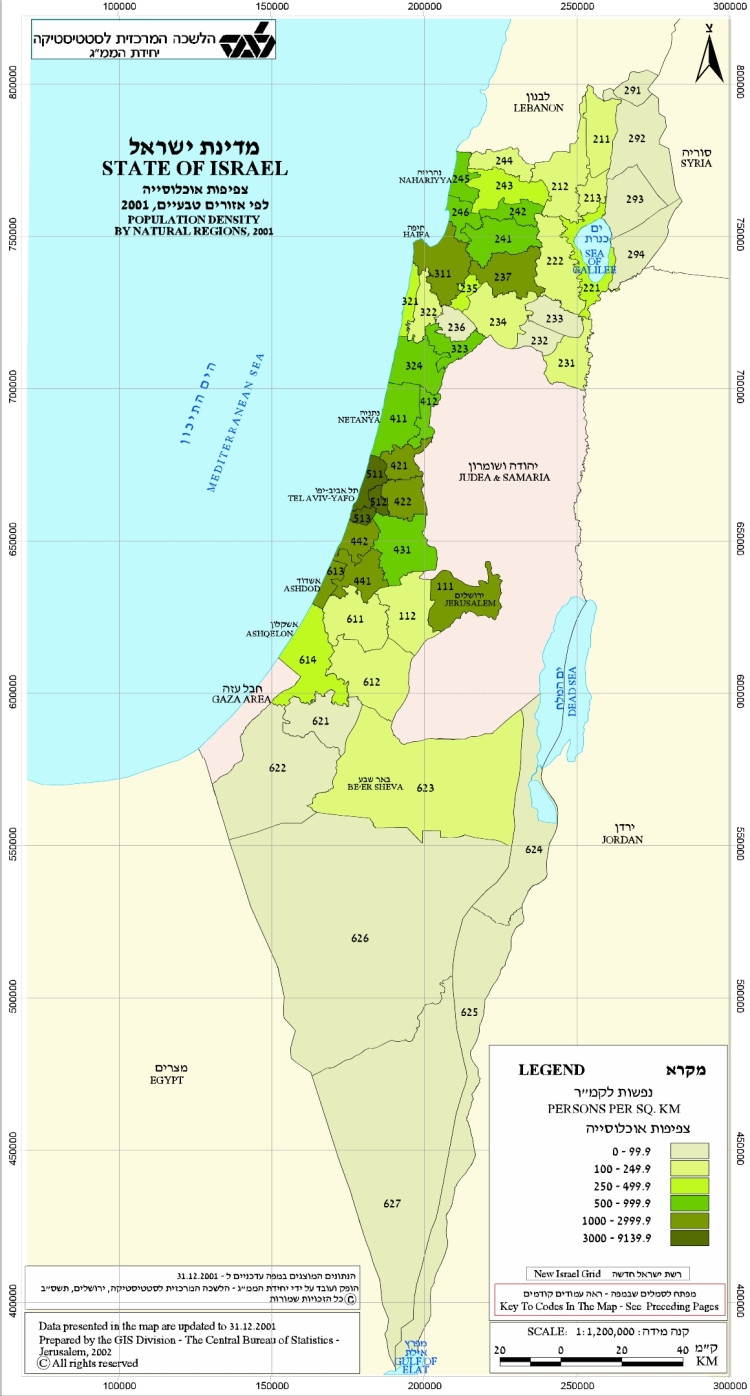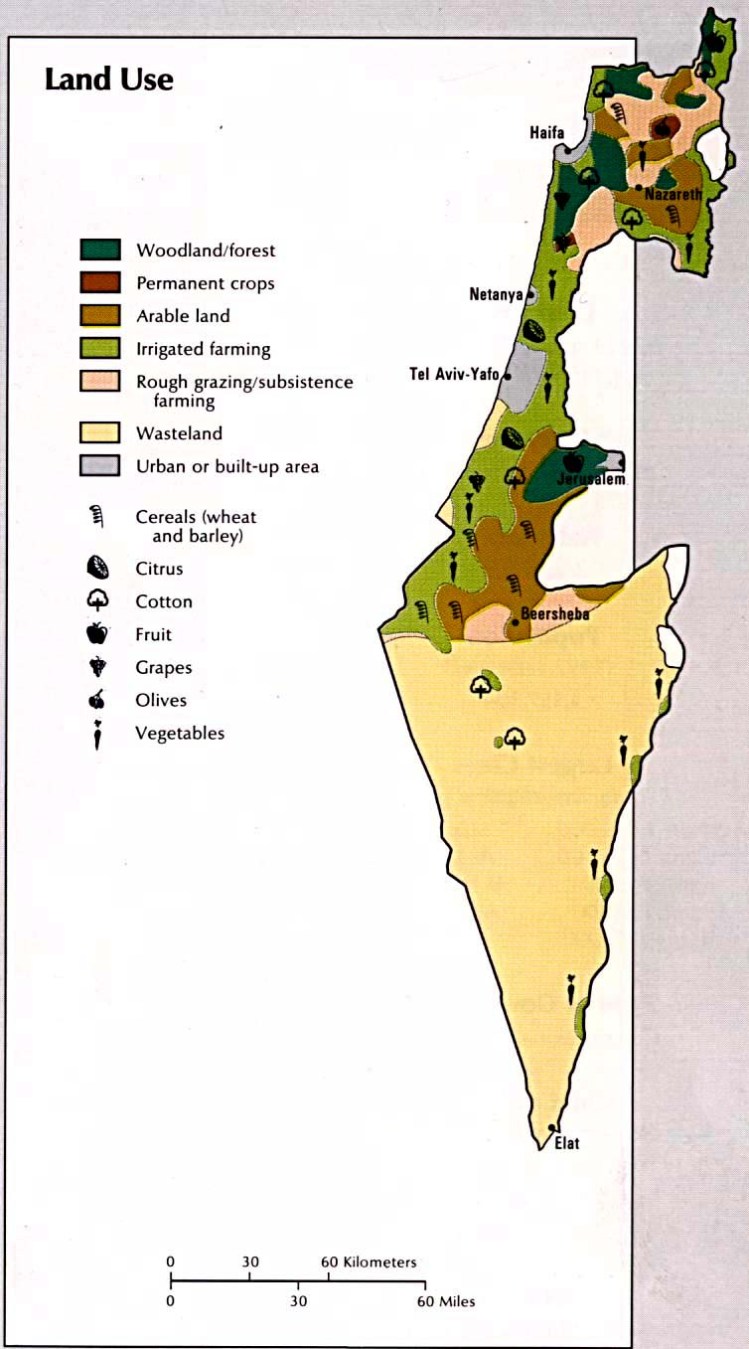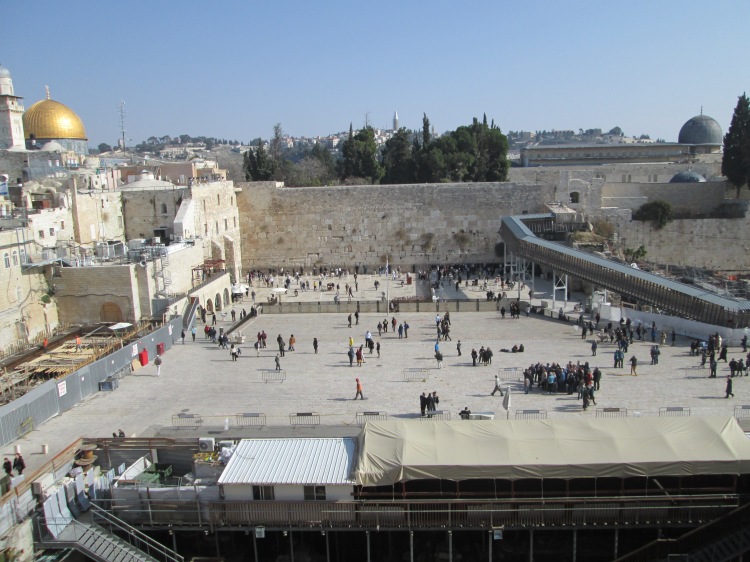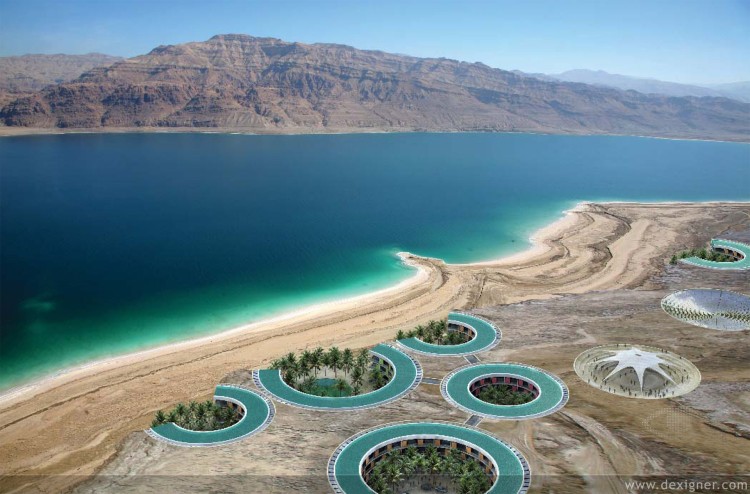Population: Israel has a population of 7,707,042. (July 2013 est.) This makes it the 98th most populated country in the world. In comparison with the United States, Israel has about 300 million less people. To get a better understanding of this, there are fewer people in this whole country than there are in some of the larger cities in the U.S.
The majority of Israel’s population tend to live in Urban areas. Approximately 91.9% of Israel’s total population live in an Urban Area and this grows by 1.7% annually. A few of the major Urban areas are Tel Aviv-Yafo with 3.219 million, Haifa with 1.027 million, and the capital of Jerusalem with 768,000. (Source: CIA World Factbook)
 This population density map shows that most people live towards the main water areas and the coast of the Mediterranean Sea. There aren’t as many people near the Dead Sea because it is very difficult to live off of being made up of mostly salt. There is also a high density in the capital of Jerusalem most likely due to its religious and historic background.
This population density map shows that most people live towards the main water areas and the coast of the Mediterranean Sea. There aren’t as many people near the Dead Sea because it is very difficult to live off of being made up of mostly salt. There is also a high density in the capital of Jerusalem most likely due to its religious and historic background.
Israel has a Parliamentary Democracy type government with no formal constitution. The Declaration of Establishment, created in 1948, has some functions of a constitution though. The legal system has many different government laws, but also includes many religious laws as well. For example, many stores close from Friday night at sundown to Saturday night at Sundown to honor the Jewish day of rest. Israel has only been established as an independent state/country since 1948, so it is still considered new. (Source: The World Factbook)
Agriculture: Though Israel is mostly desert, the North is able to produce products such as fruit, vegetables, grapes, olives, cotton, wheat, and barley. The livestock consists of cattle, poultry, fish, sheep, and goats.
Being such a dry country, water is very scarce throughout the country. The main water source for the whole country is the Sea of Galilee. This is quite small in comparison with the amount of land of Israel so it was necessary for the citizens to find new and better ways to save on water. One of these ways was to use drip irrigation systems to prevent loss of water and optimize on the amount of water that they had. (Source: Agriculture in Israel)
Industry and Tourism:
Since the climate and seasonality of Israel is quite mild, industry stays fairly constant throughout the year. The main tourism for Israel is to its capital of Jerusalem. This city has a very religious background for many religions including Judaism, Christianity, and Muslim. Tourists come to the old city of Jerusalem all year long, but the Summers tend to be hotter making the decision more based on how hot people like the weather. The winter temperatures average in the mid to upper 40s but can sometimes drop enough to allow for snow. In the mountains, skiing is possible for around a week out of the year.
Cultural Activities: While the temperature of Israel does not vary much, the summers are still warmer bringing more beach goers to the beaches around the country. The Dead Sea is also very popular, especially to people who have trouble swimming because as soon as you walk knee deep in the water you are forced on your back and begin to float. This floating is due to the high amount of salt that the Sea has.



Pingback: Braucht der Iran die Atombombe noch? - GlobalBridge
Pingback: Braucht der Iran die Atombombe noch? - bkoStrat